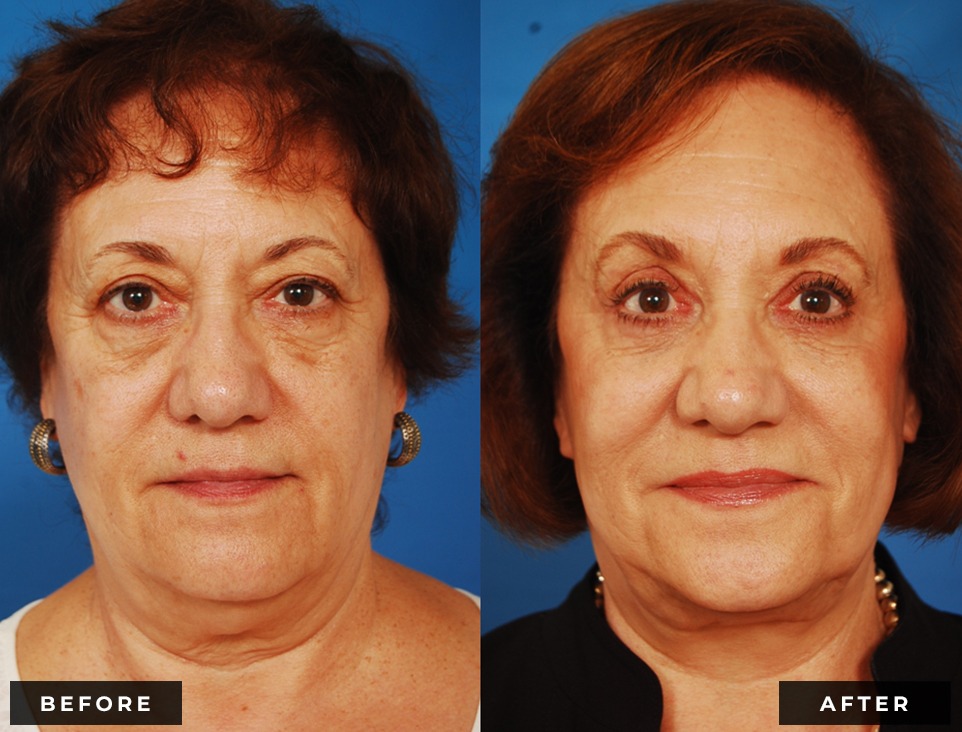3800 Reservoir Rd, 1st Floor Gorman
Washington, DC 20007
6862 Elm St, Suite 800B
McLean, VA 22101

3800 Reservoir Rd, 1st Floor Gorman
Washington, DC 20007
6862 Elm St, Suite 800B
McLean, VA 22101
Message Sent!

Brow Lift surgery is done to enhance the appearance of the forehead and upper eye area.
Clinical evaluation begins with the assessment of your specific forehead anatomy and your desires for improvement. Dr. Reilly will work with you to create a plan that aligns your goals with potential surgical treatments based on your anatomy.
Generally, this type of surgery is done to lift the eyebrows to promote a more youthful and well-rested look.
The minimally invasive technique involves small incisions within the hair and placement of a small dissolvable hook to lift the forehead skin onto. The implant, called an “Endotine,” dissolves over a period of about 6 months while the tissues are healing in place.
Most patients take one week off work, followed by another week of reduced activity. There will be bruising and swelling for 7-10 days. After 2 weeks, you may resume full activity.


Background
As we age, our faces begin to soften and change. The forehead area is one of the first places to show signs of aging. Exposure to the sun, lifestyle, genetics, and gravity all contribute to the aging of your face. You may notice that your forehead gets increasingly wrinkly, and you develop a heaviness in your eyebrows. Discuss your concerns with Dr. Reilly so he can determine the best surgical technique to address the ageing skin around your forehead and brows.
Evaluation
Dr. Reilly will perform an in-depth analysis of your forehead and the tissues around your eyes. The examination also includes an assessment of the quality, redundancy, and strength of the eyelid skin and connective tissue.
If you and Dr. Reilly determine that you are a candidate for surgery, you will also need to undergo a comprehensive eye examination by your optometrist or ophthalmologist to determine whether there are any underlying issues with your eyes that could be exacerbated by brow lift surgery. The comprehensive eye exam will include:
• Visual Acuity Testing and refraction to determine optimal vision.
• Tear break up time to measure the evaporation time of the tear.
• Schirmer’s test to measure tear production.
• Peripheral vision exam to measures your side vision.
• A microscopic exam of the outer surfaces of the eye.
• Glaucoma test to measure your eye pressures.
• Eye dilation to examine the internal eye structures, including the retina, optic nerve, corneas, lens, and blood vessels of the retina. This portion of the exam will likely affect your near vision for at least 2 hours. You may also notice sensitivity to light for up to 4 hours. The use of sunglasses is recommended during this period.
In the vast majority of patients, the desired aesthetic result is readily achieved. However, the possible complications of brow lift surgery include but are not limited to the following:
Infection, bleeding, swelling, scarring, numbness, skin discoloration, asymmetry, change in eyelid position, dryness, displeasure with the cosmetic outcome, and allergic or other negative reactions to one or more of the medications or substances used in the operation.
With the use of endoscopic technology, the newest surgical approach, several small incisions are made along the hairline to reduce the appearance of scarring, reduce facial numbness, and shorten the recovery process.
Other surgical techniques may involve larger incisions to achieve the desired look. Based on your concerns, Dr. Reilly will determine the best approach for your surgery. The purpose of of these procedures is to raise your brows and smooth your forehead. These changes can also lower a high hairline to improve facial aesthetics.
Typically, a brow lift will average one to two hours, and is performed under general anesthesia.
Arrange for someone to stay with you for the first 24 hours.
Go to bed and rest, lying on your back, with your head elevated with 2-3 pillows. You should be lying at a 45 degree angle.
You may be up and around and able to go to the bathroom. You will be able to eat a light meal with assistance.
Take medication only as directed.
Some swelling, bruising and tightness of the bandages are a normal occurrence.
Place ice packs on the forehead the first 48 hours (on for 20 minutes, then off for 20 minutes).
Keep the incisions moist with petroleum-based ointment. Cover any draining area with bandages. If they loosen, secure them with more tape. You can expect to have 1-2 drains in place overnight which will be removed the next day at your first post-operative visit.
You may be up and around as tolerated but expect to tire more quickly than usual.
Keep activity and meals light, avoiding meals that require significant chewing.
On the 3rd day, you can remove all bandages and gently shampoo your hair in the shower with baby shampoo. It is advised to let your hair air-dry, but you may use a cool setting if you need to use a hair dryer.
You will come into the office for a post-operative check-up.
No alcohol for the first 7 days after surgery, which can increase bruising and swelling.
Your swelling and bruising will gradually fade over this time period, but it may persist for up to 3 weeks. You will come in for another post-operative check-up 4-6 weeks after surgery.
You may apply makeup to conceal bruising, but be sure to avoid anywhere near the incision lines for at least 10 days after surgery.
1. Rest and good nutrition are important healing factors, especially during the first 6 weeks.
2. Numbness, tingling, hardness, tightness, and bumpiness of the surgical area are common occurrences. If any of these things do occur, they will gradually subside over several months.
Message Sent!

Dr. Michael Reilly is double board-certified by the American Board of Otolaryngology--Head & Neck Surgery and The American Board of Facial Plastic & Reconstructive Surgery. He specializes in facial plastic surgery and Rhinoplasty.
Follow up appointments:
Medical emergency:
Clinical questions: